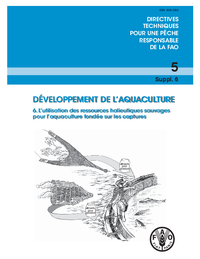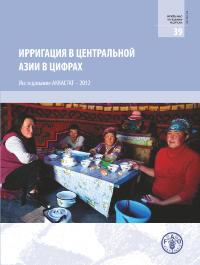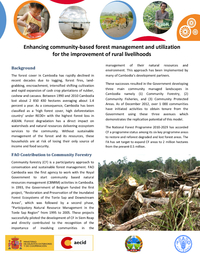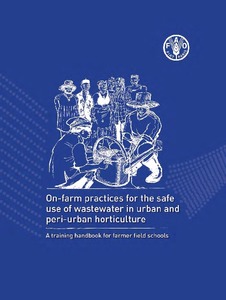Focal point
Location
The Food and Agriculture Organization of the United Nations leads international efforts to defeat hunger. Serving both developed and developing countries, FAO acts as a neutral forum where all nations meet as equals to negotiate agreements and debate policy. FAO is also a source of knowledge and information. We help developing countries and countries in transition modernize and improve agriculture, forestry and fisheries practices and ensure good nutrition for all. Since our founding in 1945, we have focused special attention on developing rural areas, home to 70 percent of the world's poor and hungry people.
Members:
Resources
Displaying 2331 - 2335 of 5074Dévelopment de l'Agriculture 6. L'utilisation des ressources halieutiques sauvages pour l'aquaculture fondée sur les captures. Directives techniques pour une pêche responsable de la FAO No. 5. Supplement 6
Ces directives techniques sur l’utilisation des ressources halieutiques sauvages pour l’aquaculture fondée sur les captures (CBA) ont été préparées par le Département des pêches et de l’aquaculture de l’Organisation des Nations Unies pour l’alimentation et l’agriculture (FAO) sous la coordination d’Alessandro Lovatelli, Fonctionnaire chargé de l’aquaculture, Division de l’utilisation et de la conservation des ressources des pêches et de l’aquaculture.
Ирригация в Центральной Азии в цифрах Исследование АКВАСТАТ 2012
В настоящем отчете представлены результаты последнего исследования, проведенного в шести странах региона Центральной Азии, и анализируются изменения, произошедшие в течение 10 лет после первого исследования. Следуя методике АКВАСТАТ, исследование в максимальной возможной степени руководствовалось страновыми статистическими данными информацией. Отчёт состоит из трех разделов. Раздел I детально описывает использованную методику и содержит глоссарий использованных терминов.
Enhancing community-based forest management and utilization for the improvement of rural livelihoods
The project goal is to promote responsible, productive, and sustainable management of forest resources by local communities to meet their needs and to stimulate development. This is expected achieved by building the knowledge and capacity of FA and CF User Groups in sustainable forest management and on responsible utilization of forest resources and nation-wide networks of stakeholders.
Water and bioenergy a case study from the Thai ethanol sector.
Modern bioenergy systems are attracting increasing attention from governments in Asia as a potential solution to a range of policy problems related to energy security and sustainable development. Despite growing interest in bioenergy systems, there is still a limited understanding of how their expansion could impact on natural resources such as water. This paper aims to shed some light on the relationship between modern bioenergy development and water depletion using a case study on the biofuel sector in Thailand.
On-farm practices for the safe use of wastewater in urban and peri-urban horticulture
The drafting of this handbook was initiated in October 2007,
in Ghana, by Ines Beernaerts, in the framework of the FAOKNUST
project on “Evaluation of non-treatment options for
maximizing public health benefits of WHO guidelines governing
the use of wastewater in urban vegetable production in Ghana”.
The Farmer Field School (FFS) approach was introduced in
the FAO-KNUST project and materialized in this handbook to
enhance the experimental learning of the (peri-) urban farmers.











